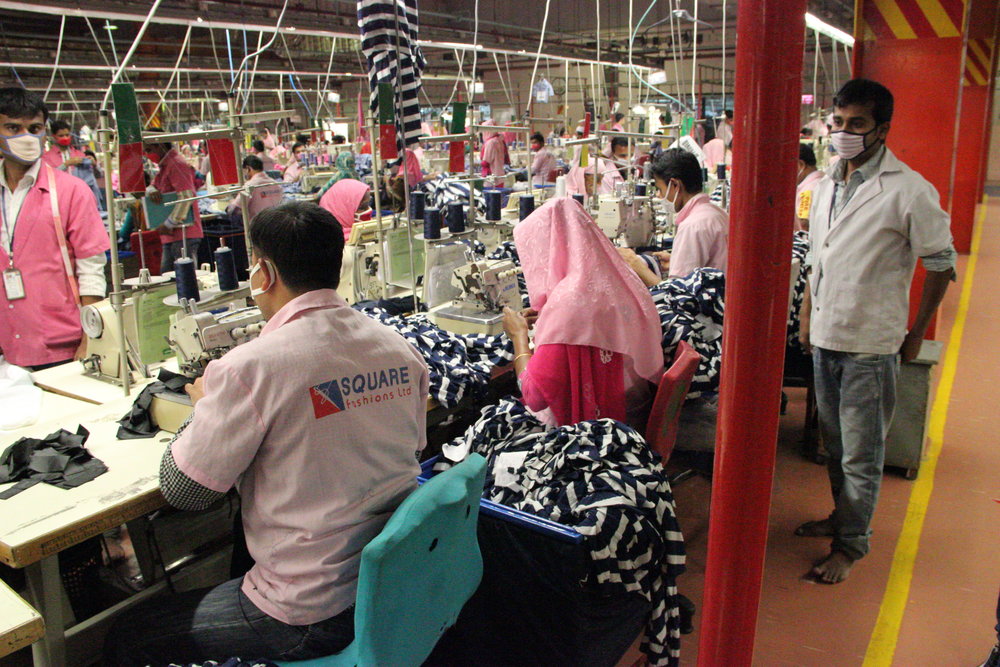The Future of Factory Safety in Bangladesh

November 9, 2017
Four years after the 2013 Rana Plaza factory collapse, the two largest programs dedicated to garment factory safety in Bangladesh are nearing their end.
The Rana Plaza disaster, which resulted in the death of more than 1,100 Bangladeshi workers, drew international attention to the sub-standard conditions in many Bangladeshi clothing manufacturing facilities. In response, major European brands that have garments made in Bangladesh formed the Accord on Fire and Building Safety, while North American brands established the Alliance for Bangladesh Worker Safety. With annual budgets totaling nearly $25 million, the two programs took responsibility for improving nearly 2,300 factories.

Recently, announcements that the Accord and Alliance would leave Bangladesh in 2018 made headlines. The Alliance has stated that it will depart at the end of May, even though remediation efforts were not expected to finish until July. The Accord experienced a setback when Bangladesh’s High Court invalidated a new agreement to extend its commitments in the country. Now the Accord will be granted six-month extensions while it focuses on transferring its functions to a local governing agency.
As the Accord and Alliance get ready to leave, the NYU Stern Center for Business and Human Rights recognizes that there is still much work to be done in Bangladesh. There is also a new opportunity for locally led efforts to make real change.
The Accord and Alliance never included the majority of Bangladeshi ready-made garment facilities in their programs. Our research at the Center, as well as work done by BRAC University, show that the Bangladeshi garment industry comprises more than 7,000 facilities—far more than the 2,300 the Accord and Alliance have recognized.
Deadly accidents in recent months illustrate that the industry is still struggling to establish safe workplaces. A boiler explosion in a factory affiliated with the Accord caused the death of 10 people. And a fire in a textile mill claimed another six lives. These incidents are emblematic of the limited scope of the Accord and Alliance.
Boiler inspections are currently not covered under the Accord’s fire and safety inspections. As a result, even though the factory in question had been inspected by Accord engineers in October 2016, the boiler itself had not been checked. The Accord has said that it will consider including boilers in its inspection program for as long as it continues to operate in Bangladesh. According to the Bangladeshi newspaper The Daily Star, there are an estimated 5,000 boilers in use in the country and only six local inspectors who are qualified to examine them. Boiler operators reportedly often receive no official instruction and are expected to learn on the job.
Textile mills are a similarly overlooked aspect of the garment industry. Neither the Accord nor Alliance includes textile mills in their respective factory lists. Textile mills are considered to be too far removed from a brand’s supply chains to include them in any safety scheme, even though they are clearly an essential link in the apparel supply chain.
With the fifth anniversary of the Rana Plaza disaster approaching, brands, unions, and civil society organizations need to assess what has been achieved through these private initiatives and what remains to be done. The remediation of a limited number of factories has not addressed the root causes of safety concerns. Those concerns stem from practices such as brands giving manufacturers short production lead times, which, in turn, create incentives for factory managers to cut corners. Nor will any private initiative be able to tackle the infrastructure problems that continue to plague Bangladesh, such as an overburdened electrical grid, which causes short circuits and factory fires. Placing systemic problems solely in the laps of the brands or their suppliers fails to acknowledge that for long-lasting change in global supply chains, responsibilities need to be shared.
We are encouraged by the initiative of the Bangladesh Garment Manufacturers and Exporters Association (BGMEA) to create their own agency to address factory safety. Shonman (which means “respect” in Bangla) will address, at the outset, one major shortcoming of previous initiatives: It has been conceptualized and will be governed by Bangladeshis, not by outsiders who can more easily detach from the country’s needs and priorities. While Shonman’s actual scope is still being defined, it will start by taking on the remediation goals of the factories covered by the outgoing Accord and Alliance.
Though Shonman is still in its infancy and must be strengthened before it can have much impact, we think the initiative is a step toward a sustainable solution in Bangladesh. Shonman has the potential to develop into a robust program that could comprehensively assess what is needed for upgrading the entire ready-made garment sector in Bangladesh. The fate of more than 5 million workers is in the balance.
 Global Labor
Global Labor


